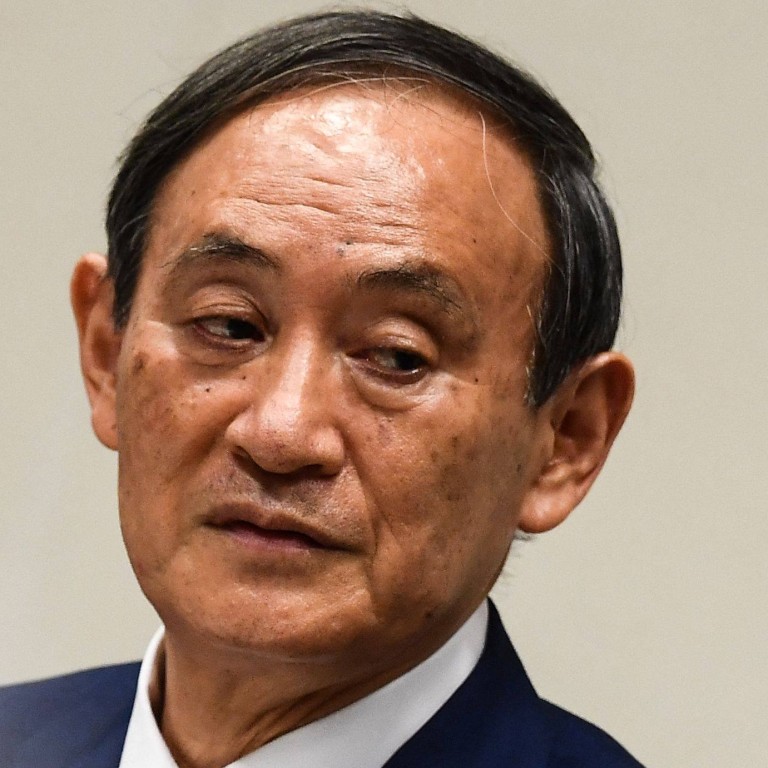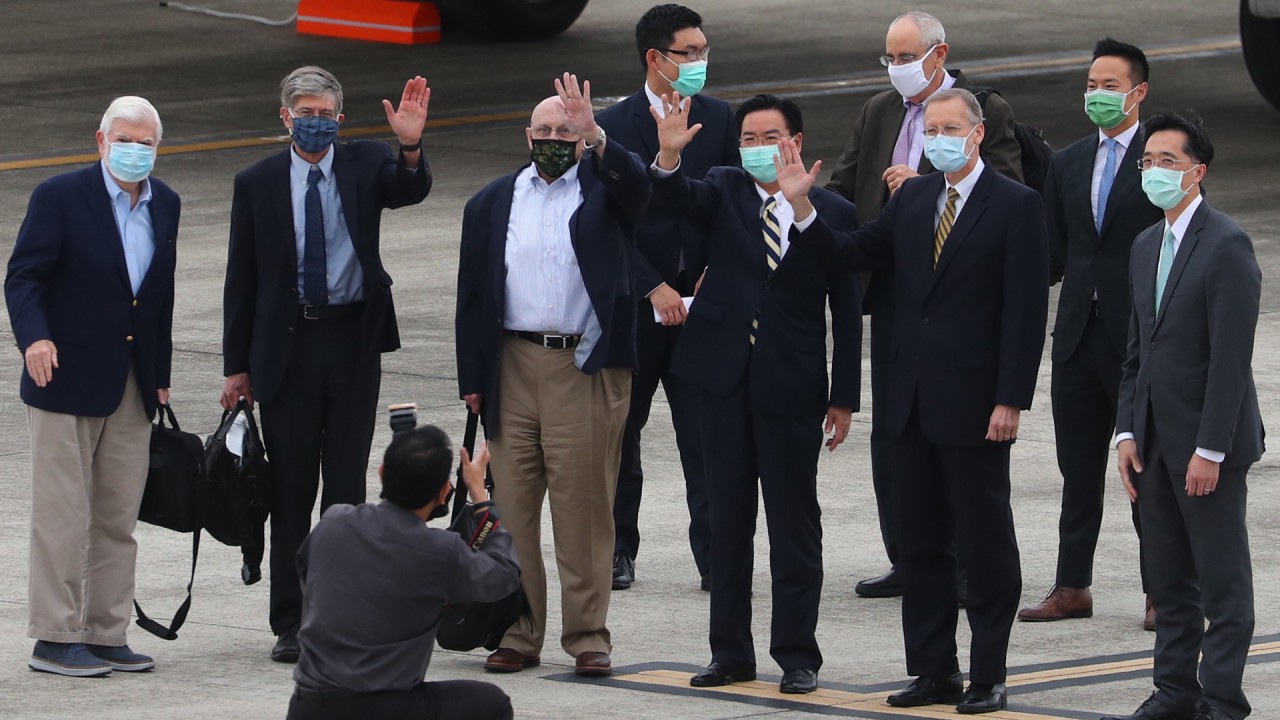
Japan expected to take position of ‘ambiguity’ on Taiwan issue
- Suga says statement with Biden calling for peace and stability across the strait ‘does not presuppose military involvement’
- Analyst says Tokyo doesn’t want to take a clear stand on whether it would help protect the island because it would be a threat to its own security
Beijing – which has not renounced the use of force to bring the island under its control – has been wary of Japan’s growing alliance with the United States under the Biden administration, particularly after US and Japanese defence chiefs agreed in March to cooperate closely if Beijing decided to attack Taiwan.
According to Kyodo news agency, Tokyo has been looking at the feasibility of issuing an order for its Self-Defence Forces to protect US warships and military planes in the event of a crisis between mainland China and Taiwan, given their proximity to Japan and the possibility that an armed conflict could affect the safety of Japanese citizens.
Takashi Terada, a professor of international relations at Doshisha University in Kyoto, said Suga’s remarks on Tuesday suggested there was not a strong expectation for military engagement over Taiwan.
“Japan expects China to find a peaceful (non-military) solution, [so] it would be contradictory if Japan stressed the military element in its approach to this,” Terada said.
He said the joint statement on Taiwan was already a “big step” demonstrating Japan’s alliance with the US, and there was no point in Tokyo taking steps that would aggravate Beijing further.
But Xing Yuqing, an economics professor at the National Graduate Institute for Policy Studies in Tokyo, said Japan would be obliged to assist the US if a conflict erupted with China over the Taiwan Strait due to a defence policy shift made under the previous administration of Shinzo Abe.
The change in 2014 saw the government reinterpret the pacifist constitution to allow troops to fight overseas for the first time since 1945.
“Japan has agreed to the US request to address Taiwan in the joint statement because it wants to demonstrate its position on this matter,” Xing said. “But more importantly, it wants to express the hope not to get involved in a potential military conflict in the Taiwan Strait.”
Hong Kong-based military commentator Song Zhongping said he believed Japan would still take a position of “ambiguity” on the issue of a possible conflict over Taiwan.
“Japan’s strategy is still vague on whether or not it’s committed to assisting the US to protect Taiwan – Japan doesn’t want to take a clear stand because that would be a huge threat to its own security,” Song said. “Even the US hasn’t clarified its strategic ambiguity on Taiwan, so Japan must also take that approach.”
Washington recognises a single China but will come to Taiwan’s defence – without spelling out what that means – and will not pressure Taipei to settle with Beijing, a policy short-handed as “strategic ambiguity”.



